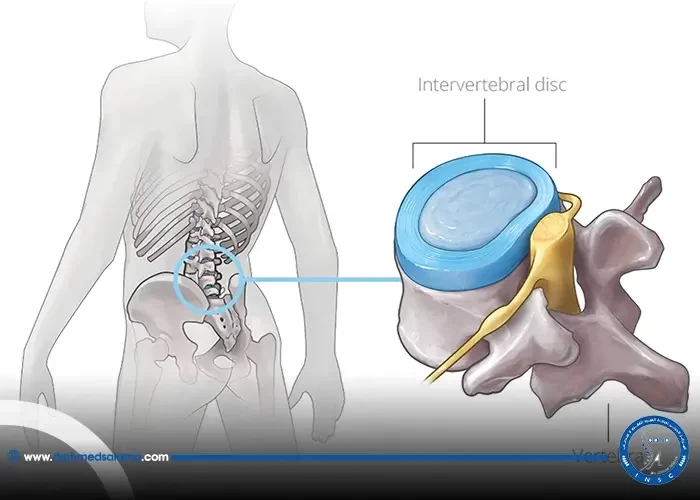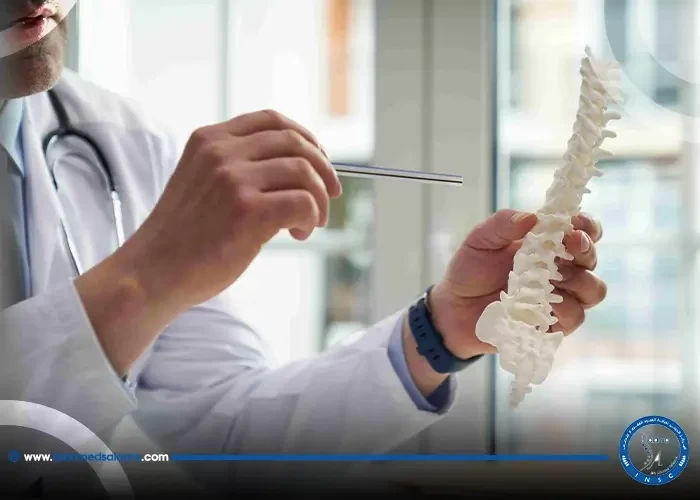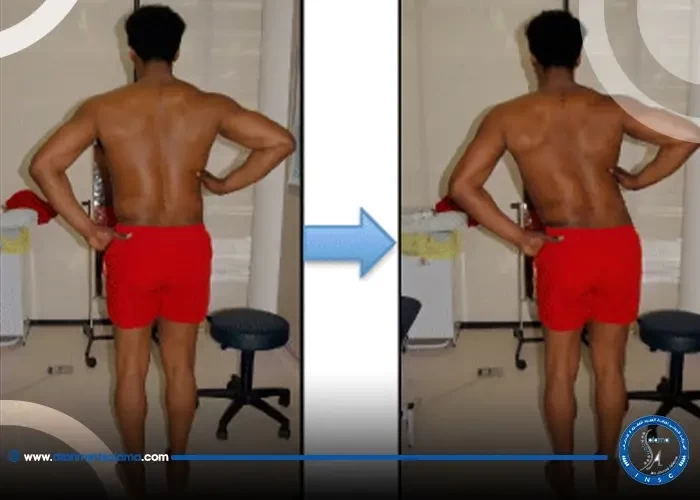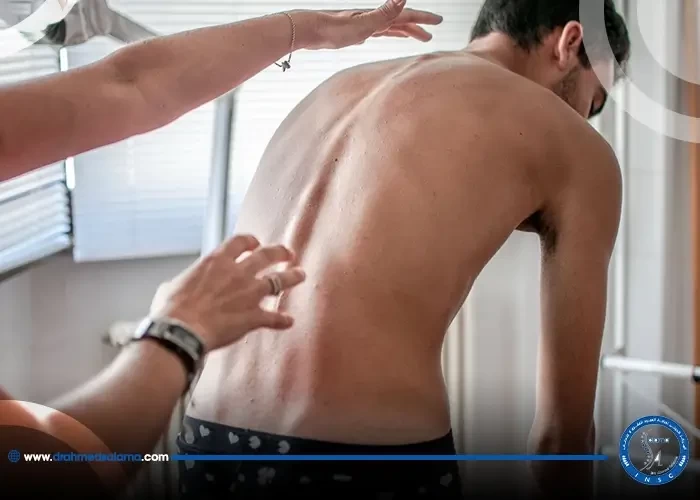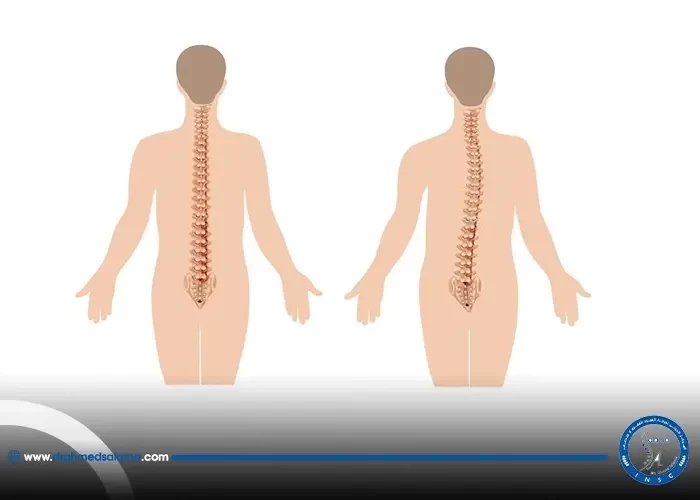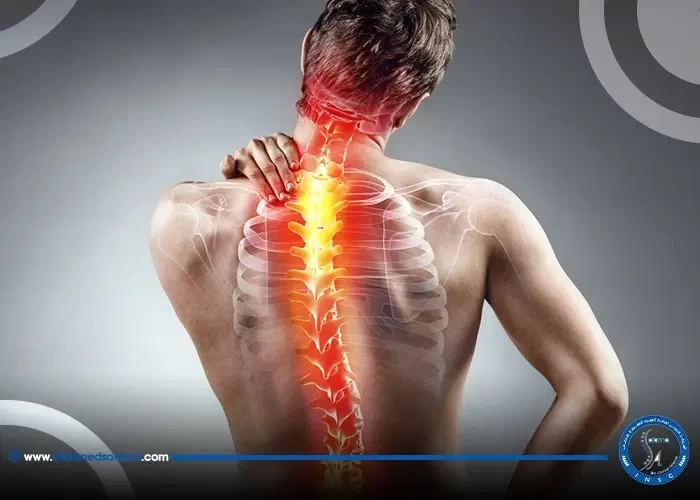Nasr City, 52 El Tayaran Street, in front of the Health Insurance Hospital

Is it possible to recover from a herniated disc permanently?
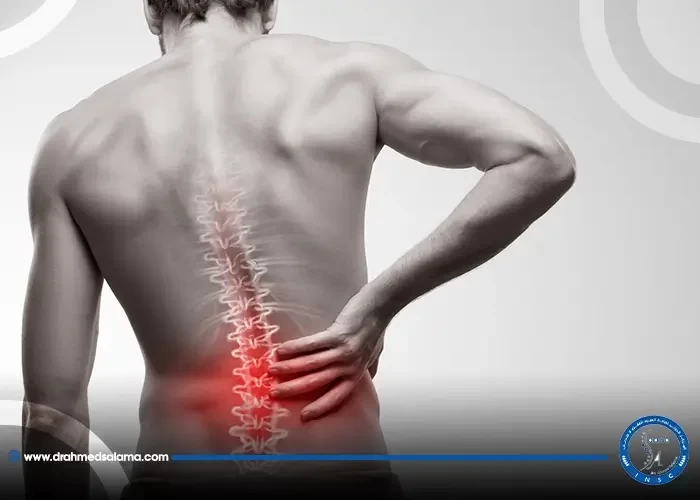
Herniated disc, also known as slipped disc, is a common spinal disorder that affects millions of people worldwide. It occurs when the soft cushion-like discs between the vertebrae in the spine become damaged or ruptured, causing pain, numbness, and weakness. Many people wonder if it is possible to cure herniated disc permanently. In this blog post, we will discuss what herniated disc is, its causes and symptoms, and whether or not it can be cured completely. So, if you're someone who's dealing with this painful condition, keep reading to find out everything you need to know.
Introduction
In this blog, the focus is on whether a herniated disc can be cured permanently. The article delves into the causes, symptoms, and treatment options available for treating this condition. It is a common ailment that affects many individuals and can cause extreme discomfort and pain. The article explores how non-surgical treatment is currently one of the most preferred methods used to recover from a herniated disc. It’s important to note that the healing period after a herniated disc typically takes 4-6 weeks and returning to normal activity is gradual. The article concludes that the treatment of pain and heat frequency is one of the most modern methods available that do not require surgery for treating a herniated disc.
What is a herniated disc?
A herniated disc, also known as a slipped or ruptured disc, occurs when the soft, gel-like center of a spinal disc protrudes through a tear in the tougher outer layer. This condition can put pressure on nerves or the spinal cord, leading to symptoms like pain, numbness, or weakness. Herniated discs can occur in any part of the spine, but are most common in the lower back (lumbar herniation) or neck (cervical herniation). While this condition can cause discomfort and limit mobility, the good news is that it can be treated and, in many cases, cured permanently. In the next section, we'll explore some of the options available for treating herniated discs.
Can a herniated disc be cured permanently?
Yes, a herniated disc can be cured permanently. While surgery is an option for severe cases, the majority of patients can recover through non-surgical treatments such as physical therapy, rest, and medication. Statistics show that most patients experience a reduction in pain and side effects within 3 to 6 months without surgery. While the cartilage cannot fully return to its original state, avoiding further strain on the affected area and maintaining good posture can greatly aid in the recovery process. It is important for patients to seek proper diagnosis and treatment from a qualified medical professional to ensure the best outcome. With the right treatment and care, recovery from a herniated disc is possible.
Treatment options for a herniated disc
When it comes to treating a herniated disc, there are various options available. Non-surgical treatment, such as taking non-steroidal anti-inflammatory drugs like ibuprofen and naproxen, is a common method used to relieve pain. Arthroscopic treatment is a less invasive technique, making it a safer option for some individuals. Complementary and alternative medicine therapies, like chiropractic care and manual processing, can also help ease chronic back pain caused by a herniated disc. The severity of the slip and associated symptoms will determine the method of treatment needed. Some patients may need to rest and alleviate the burdens that caused the injury, while others may require physical therapy to strengthen muscles and improve mobility. Regardless, with the right treatment plan, patients can achieve pain relief and improved mobility in as little as six weeks.
How long does it take to recover from a herniated disc?
Recovering from a herniated disc is a gradual process that requires patience and proper treatment. Generally, the recovery period from a herniated disc takes about four to six weeks. However, the return to normal activity is usually gradual and depends on the severity of the injury. Following a treatment plan that includes drug treatment specified by a specialist doctor is crucial to facilitate the healing process. It should be noted that most herniated discs usually return to their place on their own with the passage of time. This means that surgery is not always necessary to treat a herniated disc. However, if the pain persists or gets worse, surgical intervention may be required. Overall, it is important to approach recovery from a herniated disc with a positive mindset and follow the recommended treatment plan to ensure a full and lasting recovery.
Differences between a herniated disc and a muscle strain
It's important to differentiate between a herniated disc and a muscle strain, as the treatment options and recovery time can differ greatly. A muscle strain is typically caused by overuse or sudden awkward movements, while a herniated disc is a more serious condition caused by the disc in the spine becoming damaged and pressing on nerves. Symptoms for both can include pain, stiffness, and limited mobility, but a herniated disc may also cause numbness or tingling in the affected area. Treatment for a muscle strain is often rest, ice, and physical therapy, while treatment for a herniated disc may include pain management, physical therapy, and in severe cases, surgery. Proper diagnosis is crucial to determining the best course of treatment for either condition.
Causes and symptoms of a herniated disc
A herniated disc occurs when the cartilage between the vertebrae of the spine ruptures. This can be caused by a variety of factors, including age-related wear and tear, lifting heavy objects, and certain occupations that require repetitive motions. Herniated discs often result in intense pain, numbness, and weakness in the affected area. It's important to note that a herniated disc may not always cause symptoms and often requires no treatment. However, if pressure is placed on a nerve or spinal cord, the resulting pain can be debilitating. Diagnosis is typically made through physical examination and imaging tests such as X-rays or MRIs. In some cases, physical therapy can be an effective treatment option. By targeting the muscles surrounding the affected area, physical therapy can help to reduce pain and improve mobility. While recovery from a herniated disc is possible, it's important to take preventative measures to avoid injury, such as maintaining good posture and avoiding repetitive motions that strain the back.
Methods of diagnosing a herniated disc
Doctors use several methods to diagnose a herniated disc. One common method is a physical examination, where the doctor checks for signs of nerve damage, such as muscle weakness, numbness, or tingling. They may also perform imaging tests, such as X-rays, CT scans, or MRI scans to get a better view of the spinal cord and the surrounding structures. Based on the results, the doctor can determine the location and severity of the herniated disc. In some cases, they may use a special dye called a contrast material to visualize the spinal cord and the surrounding tissues during an MRI, which can help diagnose a herniated disc more accurately. It is important to seek medical help if you suspect you have a herniated disc, as early diagnosis and treatment can help prevent complications and improve your chances of a full recovery.
Physical therapy for treating a herniated disc
Physical therapy is a crucial component of treating a herniated disc. It is often one of the first treatments recommended by doctors when medication alone is not enough. Physical therapy can help alleviate pain, improve flexibility and strengthen the affected area of the spine. A physical therapist may use a combination of hands-on techniques, stretching exercises and specialized equipment to help with recovery. It is important to follow a physical therapy regimen closely and attend all scheduled appointments in order to see improvement. In addition to physical therapy, remaining active and practicing good posture can help prevent future herniated discs. Remember, recovery from a herniated disc is possible with proper treatment and self-care.
Conclusion: Recovery from a herniated disc is possible
In conclusion, it is possible to recover from a herniated disc. Treatment options such as physical therapy and non-surgical methods have proven to be effective for many patients. While the recovery period may take several weeks, gradual return to normal activities is possible with the guidance of medical professionals. It's important to note that even after symptoms disappear, the herniated disc may not fully heal and return to its normal position. However, with proper care and management, it is possible to live a comfortable and active life after suffering from a herniated disc. It's important to seek medical attention if experiencing symptoms and work closely with healthcare professionals to develop the best treatment plan for individual needs.
Is it possible for a slipped disc to return to its place?
This question, along with the question of whether it is possible to recover completely from a herniated disc, is one of the most common questions that preoccupies the patient when he suffers from a herniated disc. Do not worry, dear patient, the herniated disc can return to its place and be cured completely, through follow-up with a doctor who specializes in treating herniated discs.
How do I know that I have recovered from a herniated disc?
You can know that you have recovered from a herniated disc when you feel that the pain you were feeling before subsides and the pain gradually decreases until it disappears completely and the herniated disc is cured.
